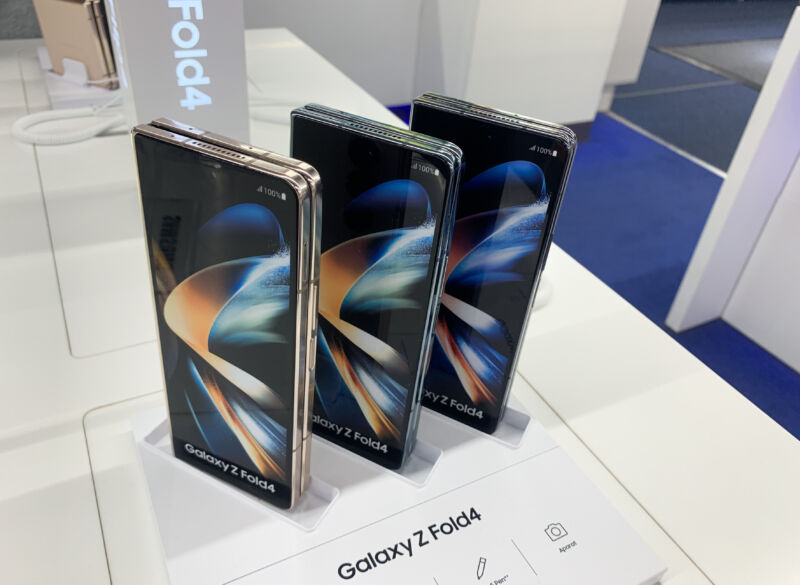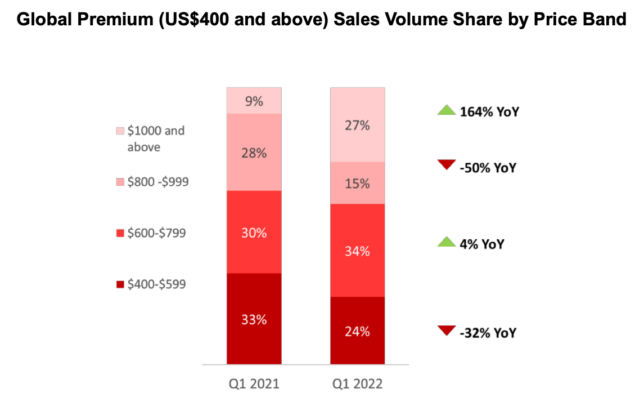
Smartphone makers are reporting big downturns in smartphone buying, and analysts think it’s because people are holding onto their phones longer. But the market is still high for expensive phones—people still like buying those.
Nearly every smartphone maker besides Samsung and Apple reported lower smartphone shipments in the second quarter (April–June) of 2022. Global smartphone shipments decreased 9 percent last quarter compared to 2021, according to International Data Corp. Chinese brands like Xiaomi, Vivo, and Oppo saw marked downturns. Xiaomi reported a 26 percent drop in smartphone shipments during the second quarter, with a similar drop in revenue.

In a Wall Street Journal report, analysts and company executives pointed to inflation, people leaving their homes more after a long pandemic, and a far softer Chinese market. Chip and component makers had recently reported similar kinds of demand dwindling, just as they were aiming to invest in more production facilities.
WSJ cites analysts speculating about phone ownership longevity, which trended upward for years. The average length of phone ownership has increased steadily, from roughly 20 months to more than two years, according to surveys between 2015 and 2019. More than half of those surveyed in a May 2022 Kantar survey, in each (annoyingly labeled) demographic—Gen Z, millennials, “Xers,” and Boomers—agreed with the sentiment that “smartphones today are all pretty much the same.”
And yet, sales of smartphones that cost more than $1,000 grew in the first half of this year, according to Counterpoint Research. That segment, which includes much of Apple’s lineup and Samsung’s flagship and foldable models, was only about 10 percent of the market, but 70 percent of its profits, Counterpoint reported. People with enough money to ignore rising costs, it seems, can still get excited about slightly better cameras and screens.
A pandemic-related lockdown in parts of China that continued into the second quarter diminished demand, along with the supply-chain issues and store closures that accompanied it. With the addition of inflation, demand dropped so much that even Apple had to discount its iPhone 13 Pro and Pro Max models, WSJ reports, going so far as to even advertise them.
Analysts suggest that smartphone buyers may eventually get restless with their current models and upgrade, either later this year or next year.
https://arstechnica.com/?p=1875292

